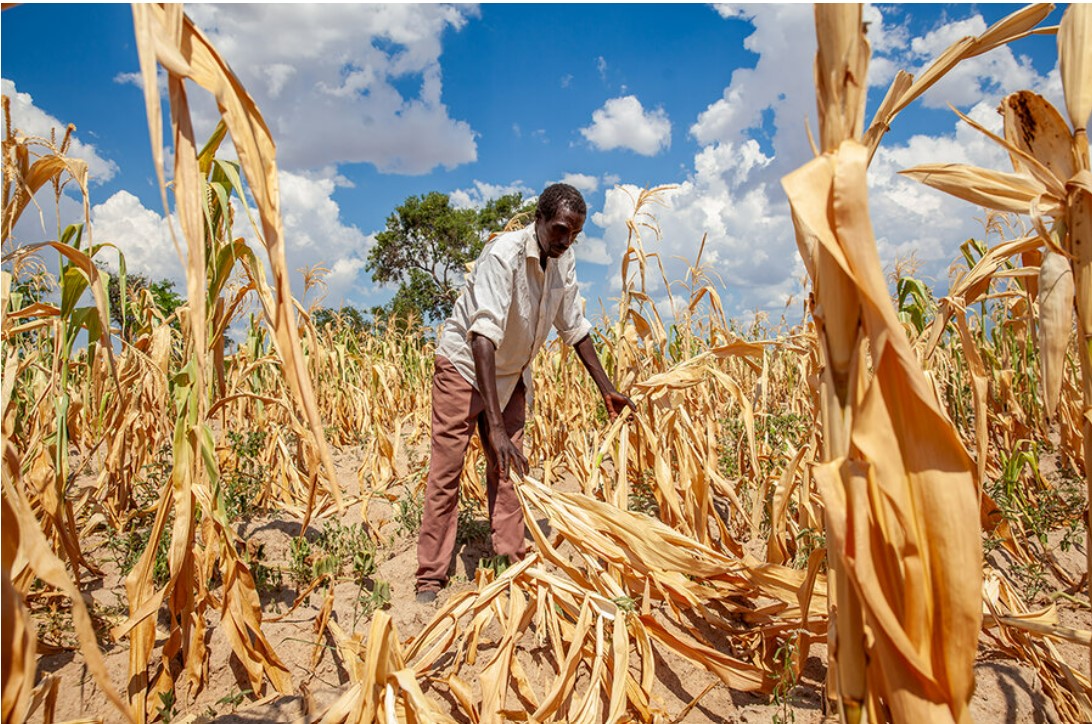Travails of A Novice Farmer

Like many other Kenyans, I do a little bit of sheep and goat farming somewhere deep in the bowels of Laikipia County. That singularly expensive hobby – because it would be personal madness to call it a business venture – has generated enough lessons to make up for a full PhD thesis. In July this year, I stood and watched over the harvesting of 1.5 acres of maize that I had purchased which I intended to use as silage. Being the first time that I was ever doing this, I intended to observe the entire process.
Silage is grass or other green fodder that is compacted and stored in airtight conditions so as to be used later to feed animals in dry seasons. The 2023 drought had taught me the painful lesson of always having ample food storage as we had been reduced to buying bales of hay for Kshs 500 per bale, against the usual price of Kshs 150. My few animals were operating a bale daily so go figure. Furthermore, finding that 500 bob bale was like looking for a 50 cent coin bearing Jomo Kenyatta’s image, simply hard to find.
Casual laborers were hired and they took an entire day to harvest and cut the maize stalks. The full day rate for local casual labor culture requires the employer to provide tea and a scone at 10 a.m. and a meal at lunchtime. If you don’t provide the meal, well, you’ll struggle to get another crew the next day. Contrary to the popular view that labor supply outstrips demand, in my little village in Laikipia you have to give a 48 hour notice to find a crew as there are quite a number of my fellow Nairobi residents doing large scale farming around the area.
Then it got interesting. The harvested maize needed to be transported to my farm and I would have to hire a lorry. The only one available was a decrepit, dilapidated truck that was literally held together by screws of hope and strings of prayer. David, the truck owner, was a cantankerous, foul mouthed diabetic who had no time for the laborers’ requirements for tea and lunch breaks. Due to the condition of the truck, David would drive painstakingly slow, ambling along the 5 kilometre distance with a repurposed dry maize cob as the gear stick holder. He complained every single minute for the two days it took to load the field of maize, transport it and unload it at the farm. On the second day, he pulled my sunburnt hand to the shade of a tree and told me that I was motivating my laborers the wrong way.
According to him, since the laborers were being paid a daily wage, they would take their time to load up the truck. Next time, he growled, I should pay them per truck that was loaded and I would see a change in their efficiency. I pursed my lips and nodded as if in deep thought. How much of this was his own angst at missed opportunities for other work and how much of this was genuine advice?
I was about to find out. Once the maize was offloaded, it had to be chopped by a thresher and poured into a pit to prepare it as silage. The thresher was powered by the engine of a tractor and the maize was manually fed into it by two laborers. Three others stood at the thresher exit to distribute and compact the chopped product in the pit . This took another three days. The thresher operator pulled my other sunburnt arm under the shade of a tree and told me that the laborers were moving too slowly for his liking. In future, I should thresh the maize as it was being harvested and pour the chopped product straight into a tipper truck. The truck would then come and tip the product straight into the silage pit. This would cut both labor and transport costs significantly. Thresher operator was basically validating what cantankerous David had said.
The two gentlemen were generous with their experience-borne advice as they watched a novice city farmer get financially burnt at the altar of ignorance. As a friend recently told me, I shouldn’t count those extraneous payments as a loss, rather, I should consider them as school fees paid in the university of side hustle life. If you’re thinking of farming, ask. Ask again. And when you’re done asking, ask once more to save yourself some school fees.
Twitter/X: @CarolMusyoka
 info@carolmusyoka.com
info@carolmusyoka.com
 carolmusyoka consultancy
carolmusyoka consultancy
 @carolmusyoka
@carolmusyoka